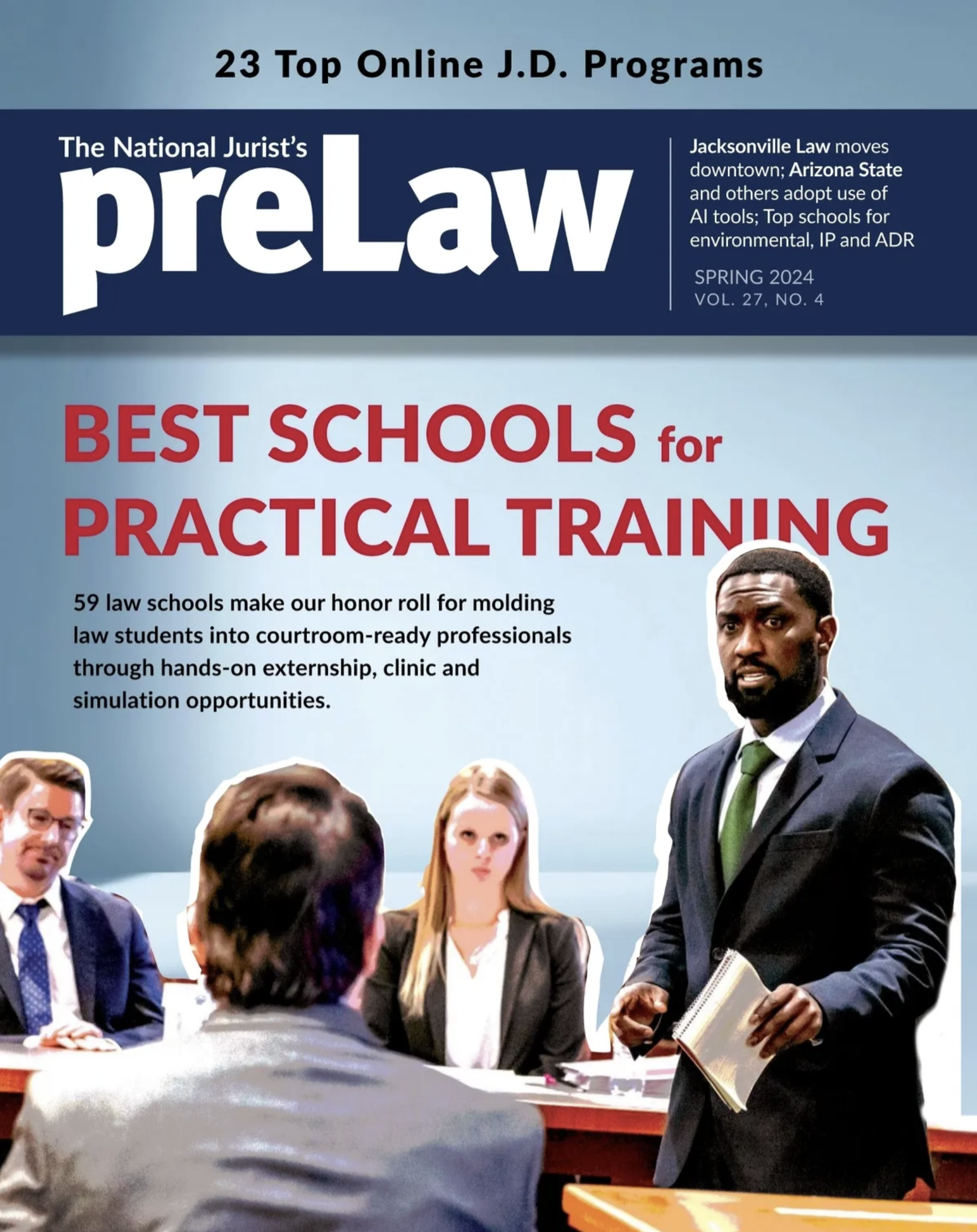The nation’s law school class of 2026 is yet to be determined, given those students won’t enter school until 2023. However, we can already offer both good news and bad news to the future law students.
The bad? Most of them will still have to take the bar exam. It doesn’t appear to be going away any time soon. Barbri, Kaplan, Quimbee, et al. await …
The good? A brand-new bar exam is slated to launch in 2026. And it’s hoped to be better suited to judge their worthiness to practice.
It’s a pretty big deal. This new bar exam, called NextGen Bar, will have been eight years in the making and arguably will be revolutionary when it is expected to debut four years from now. For one, it will test only eight subject areas — down from 12 — and increase the focus on evaluating skills-based abilities.
It will also be done on a computer. Goodbye paper and pencil.
Here’s the big question, particular for our future law school grads: Will it be easier? That’s unknown. It may require just as much prep and cause just as much anxiety as the current test.
However, the National Conference of Bar Examiners (NCBE), which administers the exam to 54 jurisdictions, has been working diligently to create a test that it hopes will be more progressive and relevant to today’s lawyering.
It recently released the preliminary “Content Scope Outlines” for the new exam, which offers a look at how it will be reconfigured. The nonprofit NCBE is now seeking input on the concepts, a window that will close on April 18.
The shift to a more skills-based exam has been championed by many for some time. The current exam, critics argue, is too focused on subject matter that fails to address real-life lawyering acumen.
“One of the goals is to make it more realistic to what lawyers do in practice,” said Kellie Early, NCBE’s chief strategy officer.
So the new exam is being designed to test future lawyers on additional real-life skills. It’s a work in progress, mind you, which will require significant pilot testing and analysis. But a framework is now very much a reality, following a considerable effort to capture input from a wide range of legal influencers.
“It’s a very big and very important project,” Early said. “It’s taken a huge amount of work.”
While the current bar does test skills, this one will expand such evaluation. It will include legal research, investigation and evaluation, client counseling and advising, negotiation and dispute resolution, and client relationship and management, according to an NCBE news release.
A computer-based test is necessary to accommodate the changes.
“The expansion of skills testing will require development of new question types; as a result, the current bar exam format will be retired in the coming years, and a new format, featuring integrated sets of questions (likely a combination of short-answer, multiple-choice, and longer legal drafting questions) is in development.”
The current bar exam has had many critics, some of whom argue it should be done away with. They say it’s a rite of passage that has evolved to a non-essential rite of passage. After three years of law school — which come at considerable expense — graduates should not have to prove their muster to practice law by passing yet another exam.
Secondly, minorities do worse on it, which hurts the effort to diversify the legal profession. A growing number of legal experts wonder if other pathways to licensure should be explored.
However, many in the legal field argue that the bar exam is incredibly important because it provides a benchmark of competence. If that doesn’t exist, the quality of legal representation may be compromised.
But there has been growing momentum for change.
Brian Gallini, dean of Willamette University College of Law in Salem, Ore., sat on a task force that looked at possible options for licensure in the state of Oregon. The task force came up with two recommendations, which the Oregon Board of Examiners advanced to the Oregon Supreme Court.
One option focuses on advanced experiential work during law school, while the other suggests apprenticeships with working lawyers after graduation. The task force did not call for the abandonment of the current test, just these new options.
Gallini supports the additional skills testing that the new bar exam proposes. However, the details remain fuzzy, he said.
“The recently released content scope outlines tell us nothing about how, with precision, the exam itself will be administered or, for that matter, how much it will cost,” he said.
Secondly, content is only one issue. Individual states can do as they please with the exam, he noted.
“The creation of content for a new bar exam tells us nothing about whether and how each jurisdiction will react,” he said. “Will state supreme courts jump to adopt this new exam? Relatedly, how will the new exam impact established cut scores?”
While the bar has faced criticism for years, the critiques ramped up dramatically during the COVID-19 pandemic. In many jurisdictions, the bar had to be delayed and moved online because of the pandemic.
Students were among the most vocal opponents, with many saying they should not have to take the bar at all, given the stressors they were facing. A few states did agree and went with diploma privilege, meaning graduates could start practicing immediately. The only state that has had diploma privilege is Wisconsin. That’s been the case for more than a century.
But it wasn’t just students questioning the bar’s relevancy. Top legal educators such as Gallini began pushing for reform. One of the big reasons is that the more affluent have an advantage. If they don’t have to work or provide for a family, they have the time and money to prepare. It’s also not a level playing field nationally. Some states, such as California, demand higher scores to pass.
Early, from the NCBE, said the organization’s mission is to create a fair and balanced exam. What state jurisdictions do with it is beyond its control. Yes, the performance gap when it comes to minorities is and has been a concern. But that performance gaps exists in a host of tests, such as the LSAT.
“Our role is to ensure the exam is the best it can be,” she said. “That it’s valid, reliable, fair and defensible to use.”
Mike Stetz is a contributing editor for National Jurist and preLaw.







